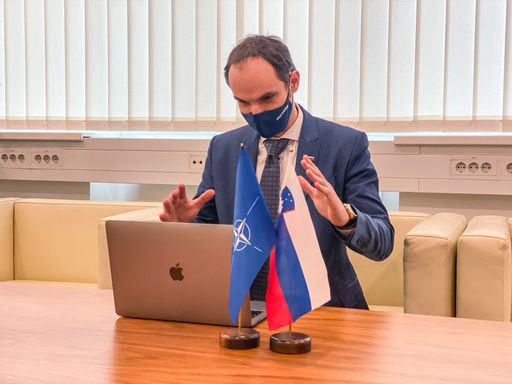Minister Logar at the North Atlantic Alliance meeting on the NATO 2030 process
- Ministry of Foreign Affairs
- Permanent Representation to NATO Brussels
Minister Logar underlined that NATO was not just another organisation, but an Alliance of allies, which means that it builds on the foundation of the principle of consensus and the transatlantic bond. While strengthening the political dimension, it should not be forgotten that NATO is an Alliance of democracies. In this regard, he expressed his conviction that proactive mutual consultations were the best guarantee for solidarity and unity between the allies.
The minister advocated the development of NATO’s new Strategic Concept, which will make it possible to consolidate views on the emerging threats facing the Alliance, and also to take informed and prompt decisions in the future. Any changes in the strategic environment should be identified, among others, those concerning Russia, China, new technologies, the fight against terrorism, arms control and stronger cooperation with partners, in particular with the European Union.
The NATO 2030 Report was prepared by ten distinguished experts from allied countries appointed by NATO foreign ministers at their meeting in April 2020. This Report completes the first phase of the process, which the NATO Secretary General will carry forward by conducting talks with the allies, civil society, young leaders, members of parliaments and the private sector. Based on this, recommendations will be produced for Heads of States or Governments of allied countries for their next meeting at the NATO Summit in 2021.
During today’s video-conference, the ministers also discussed NATO’s relations with Russia. The allies agreed they should improve coordination and step up efforts in this area, including as part of the response to Russian missile threats. They also approved the recommendations on the way forward for the Western Balkans, which remains a region of strategic importance to the Alliance. As talks turned to the situation in Afghanistan, they reiterated their support for providing training, counselling and assistance to the Afghan National Defence and Security Forces for as long as necessary.


